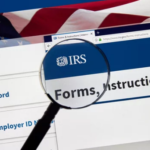With the rise of e-commerce, the business now has access to the most significant and farthest markets, but it also demands more hard work. Even the smallest transactions aren’t simple and involve a lot of factors to be taken into count. One of the various aspects is to figure out which sales tax is applicable on individual sales.
It is based on the state in which you are operating. You must charge the sales tax depending upon whether your state applies origin-based or destination-based sales tax.
This is of special concern for businesses that mainly ship their products to other locations. They must know what sales tax they can charge because, in every state, sales tax rules are different.
Here is everything which you should know before collecting sales taxes for out-of-state sales.
Sales Tax Laws and Regulations
Contents
As of 2020, In the United States, forty-five states and Washington DC all have a sales tax, and each state makes its own laws. Delaware, Oregon, Montana, New Hampshire, and Alaska are the only states that don’t tax the sales.
However, Alaska allows the local counties and municipalities to levy their own sales taxes, and Montana imposes some special taxes in resort areas.
For this reason, you have to look at the state level to determine how much sales taxes you can collect from your customers.
Moreover, the highest state-level taxes are in California, Rhode Tennessee, Mississippi, Island, and Indiana.
States with destination-based Taxes

Most states have destination-based sales taxes. Based on this rule, each sale is charged based on where the product is being shipped to or picked up from. Or you can say that sale is considered to take place in the jurisdiction where the product will be used.
For example, if you are operating in Georgia and someone buys something there, you will charge Georgia’s sales tax, but if the customer purchases an item to be shipped to Florida, you will charge Florida’s sales tax. This is because you are applying destination-based sales taxes.
Additionally, you cannot collect your own state’s taxes if you are shipping the products out-of-the-state.
The destination-based States are:
- Alabama
- Arkansas
- Colorado
- Connecticut
- District of Columbia
- Idaho
- Indiana
- Iowa
- Kansas
- Kentucky
- Louisiana
- Maine
- Maryland
- Florida
- Georgia
- Hawaii
- Massachusetts
- Nebraska
- Michigan
- Minnesota
- Nevada
- New Jersey
- New York
- North Carolina
- North Dakota
- Ohio
- Oklahoma
- Rhode Island
- South Carolina
- South Dakota
- Vermont
- Washington
- West Virginia
- Wisconsin
- Wyoming
➡LEARN MORE: Everything about Use Tax Exemption/Resale Certificate
States with origin-based Taxes
Very few states have origin-based sales taxes. According to this rule, a sale is charged tax based on the location where the purchase was completed. Even if you are shipping the product somewhere else, you should charge your state sales tax.
The origin-based States are:
- Texas
- Mississippi
- Missouri
- Arizona
- Utah
- Illinois
- Ohio
- Pennsylvania
- New Mexico
- Tennessee
- Virginia
Nexus in another State
Apart from the above rules, there is another important thing to consider for businesses with a nexus in another state.
Nexus means to have an affiliation or a legal connection that subjects you to its state laws. You may have a physical presence in the form of a retail store, a warehouse, or a corporate office. The store doesn’t need to be open to the public.
In such a situation, even if you are operating from an origin-based state, you would collect other state sales tax and also file a tax return there.
Where to submit the Sales Taxes
You must submit the sales taxes to the appropriate state. Most states demand monthly sales tax returns with every payment.
If you fail to submit the correct amount at the right time, you may be liable to a serious penalty. You can lose the right to do business within that state or pay hefty fines.





